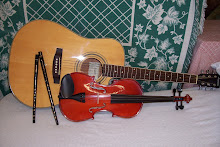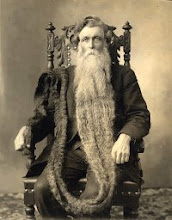A letter from William Cowper
TO REV. JOHN NEWTON
November 30, 1783. . . .
Let our station be as retired as it may, there is no want
of playthings and avocations, nor much need to seek them,
in this world of ours. Business, or what presents itself to us
under that imposing character, will find us out even in the stillest
retreat, and plead its importance, however trivial in reality,
as a just demand upon our attention. It is wonderful how, by
means of such real or seeming necessities, my time is stolen
away. I have just time to observe that time is short, and by the
time I have made the observation, time is gone. I have wondered
in former days at the patience of the antediluvian world, —
that they could endure a life almost millenary, with so little
variety as seems to have fallen to their share . It is probable
that they had much fewer employments than we. Their affairs
lay in a narrower compass; their libraries were indifferently
furnished; philosophical researches were carried on with much
less industry and acuteness of penetration; and fiddles, perhaps,
were not even invented. How then could seven or eight
hundred years of life be supportable? I have asked this question
formerly, and been at a loss to resolve it; but I think I can
answer it now. I will suppose myself born a thousand years before
Noah was born or thought of. I rise with the sun; I worship;
I prepare my breakfast; I swallow a bucket of goat's milk,
and a dozen good sizable cakes. I fasten a new string to my
bow, and my youngest boy, a lad of about thirty years of age,
having played with my arrows till he has stripped off all the
feathers, I find myself obliged to repair them. The morning is
thus spent in preparing for the chase, and it is become necessary
that I should dine. I dig up my roots; I wash them; I boil
them ; I find them not done enough ; I boil them again ; my wife
is angry; we dispute; we settle the point; but in the mean time
the fire goes out, and must be kindled again. All this is very
amusing. I hunt; I bring home the prey; with the skin of it I
mend an old coat, or I make a new one. By this time the day
is far spent; I feel myself fatigued, and retire to rest. Thus,
what with tilling the ground and eating the fruit of it, hunting
and walking and running, and mending old clothes, and sleeping
and rising again, I can suppose an inhabitant of the primaeval
world so much occupied as to sigh over the shortness of
life, and to find at the end of many centuries that they had all
slipped through his fingers, and were passed away like a shadow.
September 18, 1784. . . .
My greenhouse is never so pleasant as when we are just
upon the point of being turned out of it. ... I sit with all the
windows and the door wide open, and am regaled with the
scent of every flower in a garden as full of flowers as I have
known how to make it. We keep no bees, but if I lived in a
hive I should hardly hear more of their music. All the bees in
the neighborhood resort to a bed of mignonette opposite to the
window, and pay me for the honey they get out of it by a hum
which, though rather monotonous, is as agreeable to my ear as
the whistling of my linnets. All the sounds that nature utters
are delightful, — at least in this country. I should not, perhaps,
find the roaring of lions in Africa, or of bears in Russia,
very pleasing; but I know no beast in England whose voice I
do not account musical, save and except always the braying of-
an ass. The notes of all our birds and fowls please me, without
one exception. I should not, indeed, think of keeping a goose
in a cage, that I might hang him up in the parlor for the sake
of his melody; but a goose upon a common, or in a farm-yard, is
no bad performer. And as to insects, if the black beetle, and
beetles indeed of all hues, will keep out of my way, I have no
objection to any of the rest; on the contrary, in whatever key
they sing, from the gnat's fine treble to the bass of the humble
bee, I admire them all. Seriously, however, it strikes me as a
very observable instance of providential kindness to man, that
such an exact accord has been contrived between his ear and
the sounds with which — at least in a rural situation — it is
almost every moment visited. All the world is sensible of the
uncomfortable effect that certain sounds have upon the nerves,
and consequently upon the spirits; and if a sinful world had
been filled with such as would have curdled the b'.ood, and have
made the sense of hearing a perpetual inconvenience, I do not
know that we should have had a right to complain. But now
the fields, the woods, the gardens, have each their concert, and
the ear of man is forever regaled by creatures who seem only to
please themselves. Even the ears that are deaf to the Gospel
are continually entertained, though without knowing it, by ',
sounds for which they are solely indebted to its Author. There
is somewhere in infinite space a world that does not roll within
the precincts of mercy, and as it is reasonable, and even scriptural,
to suppose that there is music in heaven, in those dismal
regions perhaps the reverse of it is found, — tones so dismal as
to make woe itself more insupportable, and to acuminate even
despair. . .
This is an excerpt of the many letters of Cowper found at the address below:
http://books.google.com/books?id=sy1DAAAAIAAJ&pg=PA525&dq=cowper+letters&lr=#PPA532,M1





































